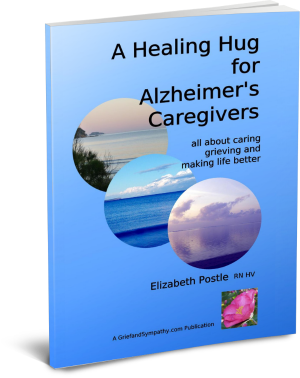Alzheimer's Warning Signs and Symptoms
Are you worried you or a loved one is showing Alzheimer's warning signs or symptoms?
Here we explain some of the early signs and symptoms of Alzheimer's disease.
We all forget names or go into a room and then cannot remember what we went there for, most of us can be thinking of several jobs we have to do at once and lack of concentration can cause us to forget. However a person with Alzheimer’s has more severe problems with thinking and memory.
A young lady I knew went jogging each morning. She knew something was wrong when one day she realized she had no idea how to get home again.
When we take a telephone call, we store the memory and pass on messages, a person with signs of early Alzheimer's disease will have forgotten the call as soon as the receiver is replaced. This can cause concern within the family when the loved one does not turn up for family gatherings and denies getting the call. This problem can be corrected by leaving a pen and pad by the phone so that the person can write down messages but they and family have to realize there is this problem first.
A mother realized something was wrong when her daughter stopped the car at a motorway service station, filled the car up with petrol and they went into the café for a cup of tea. Minutes after setting off on their journey again her daughter said “I must stop at the next service area for some petrol” She had no recollection of having just performed the task.
It is an accumulation of lots of incidences like this that can register with close friends and families that something is wrong.
Here is a list of some of the main early signs of Alzheimer's disease
Many of the following symptoms can be normal signs of old age. Do not panic if you notice some of these. Alzheimer's disease is very difficult to diagnose and must be done by a specialist psychiatrist. It might be nothing or they could be the signs of any of many conditions too numerous to talk about here. If you are concerned about yourself or a loved one don't be afraid to consult your doctor.

- Changes in personality.
- Becoming more anxious, or more aggressive.
- Becoming depressed.
- Forgetting words and names.
- Inability to shop, bringing home the wrong sorts of groceries.
- Becoming extravagant.
- Becoming sleepier. Or sitting about all the time.
- Not doing normal jobs and chores.
- Repeating things. Telling the same story several times.
- Losing things.
- Setting off to visit someone, and ending up somewhere else.
- Forgetting grandparents' day at school or appointments.
- Getting lost.
- Losing track of time and days.
One of the earliest signs of Alzheimer’s disease is the inability to cope with financial matters - losing the ability to control money, forgetting to pay bills. The telephone being cut off may be the first sign of trouble. A loved one who has been frugal and careful with budgeting for most of their lives can start to behave in extravagant ways. Their finances should be monitored.
Your loved one may be taken in by salesmen at the door or on the telephone, so do be careful of this.
It is wise to get Power of Attorney over a close relative’s affairs early. These days they advise you to give Power of Attorney to someone you trust when you are capable of understanding what it means as it is much easier then.
There is no substitute for a proper diagnosis. The advice of a doctor or psychiatrist is essential and they are very understanding. There is lots of help and support available, so don't be afraid to ask.
For a complete guide to Alzheimer's Care, from diagnosis through every step of the way, check out my book: "A Healing Hug for Alzheimer's Caregivers"
Related Pages:
More serious Alzheimer’s symptoms and advice on when to get more help
Sundown Syndrome - What is it and what to do about it.
- Grief and Sympathy Home
- Alzheimer's Spouse Grief
- Alzheimer's Warning Signs and Symptoms
Keep in touch with us:
Sign up for our newsletter and receive:
"The 10 Most Important Things You Can Do
To Survive Your Grief And Get On With Life"
Our free downloadable and printable document "The 10 Most Important Things You Can Do To Survive Your Grief And Get On With Life" will help you to be positive day to day.
The 10 points are laid out like a poem on two pretty pages which you can pin on your fridge door to help you every day!
All you have to do to receive this free document is fill in your email address below.
You will also receive our newsletter which we send out from time to time with our newest comforting and helpful information. You can unsubscribe any time you like, and don't worry, your email address is totally safe with us.
NEW BONUS - Also receive a copy of our short eBook - '99 Ways to Spot a Great Grief Counselor'. Available for instant download as soon as you sign up. Never waste money on poor counseling again!




